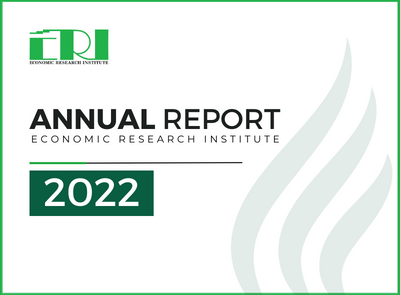This paper develops a dynamic, small open economy Computable General Equilibrium model with static expectations and a representative household for the Mongolian economy and examines the impact of the Fiscal Stability Law (FSL) which tries to stabilise government expenditure in an environment where the prices of mineral products (coal and copper) are highly volatile. It has two main parts – historical and forecast simulations. In the former, we follow a validation procedure to estimate the parameters of the model while in the latter we examine the effect of the FSL on the economy by generating artificial series for coal and copper prices until 2020. We find that the FSL reduces the volatility of most of the variables.
 mn
mn en
en- Нүүр хуудас
- Бидний тухай
ERI нь чанарын өндөр түвшний, мэргэжлийн хөндлөнгийн хяналтаар шүүгдсэн, хараат бус байдлаа хадгалж чадсан, оновчтой асуудал дэвшүүлсэн бодлогын шинжилгээ, судалгааны ажлыг хийх, санхүүжүүлэх, эдгээр судалгаануудын гол үр дүнг нийтэд ойлгомжтой байдлаар интернэтээр болоод бусад мэдээллийн арга хэрэгслээр сурталчлах, бодлогын судалгаа хийх хэрэгцээг тодорхойлж төрийн болоод бусад байгууллагуудад танилцуулахад гол үйл ажиллагаагаа чиглүүлэх юм.
- Мэдээ, мэдээлэл
Манай хүрээлэнгээс зохион байгуулж буй хурал болон судалгаа, шинжилгээний ажлуудтай холбоотой мэдээллүүд.
- Манай Судалгаа
Манай хүрээлэнгийн хийгдэж байгаа судалгаа, хийгдсэн судалгаанууд мөн ERI сэтгүүлд хэвлэгдсэн судалгааны ажлуудыг энэхүү цэсээс авах боломжтой.
- Судалгааны сан
Олон улсын байгууллага болон Монгол улсын судалгаа, шинжилгээний газруудын эдийн засгийн чиглэлээр хийгдэж байгаа болон хийгдсэн судалгааны ажлуудын санг бид энэхүү сандаа бүрдүүлж байна.
- Холбоо барих
